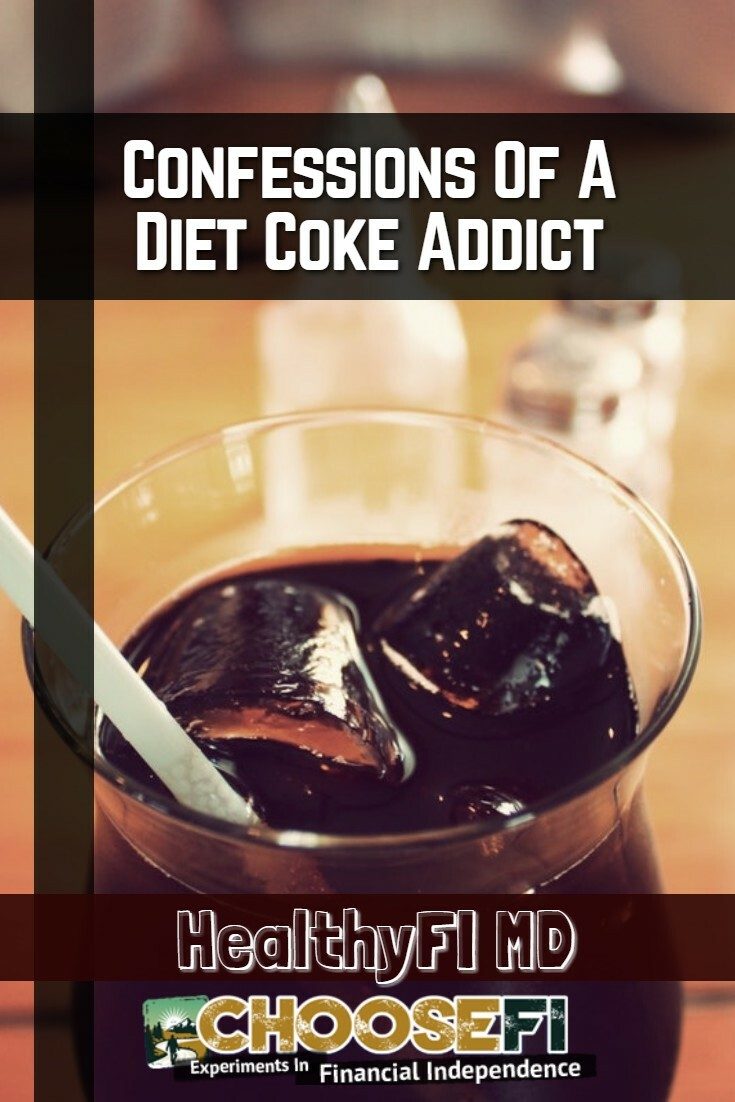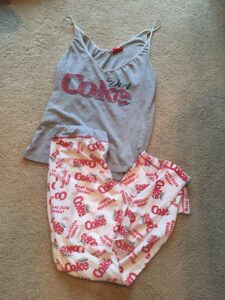I am a recovering Diet Coke addict. You may think Diet Coke addiction is not a real thing, but I can assure you my addiction met all of the medical definitions of addiction. I started drinking Diet Coke in high school, around the time it was reaching peak popularity. In college and all through medical school, Diet Coke served as my main form of caffeine. By the time I reached medical school I craved, no–NEEDED a Diet Coke to start off my day.
This type of addiction was always viewed by others as no big deal, and we would laugh about it as though it was just one of my quirks. My husband actually bought me a small refrigerator for my closet so I would not have to even go downstairs in the morning to get a cold Diet Coke. While completely enabling me, I do consider this one of his most thoughtful gifts ever. I even had Diet Coke pajamas…a true sign of an addiction.
What is wrong with drinking diet soda?
Other than the ridiculous cost of my Diet Coke habit (I estimate it was costing $1,000 per year, even on sale!) what is the big deal?
Diet Coke, and other diet sodas contain artificial sweeteners or “non-nutritive” sweeteners such as aspartame, sucralose, and stevia. They contain no sugar, and have no calories. Diet Sodas are approved by the American Diabetes Association for diabetics, and the FDA has also approved them as food additives. On the surface, these seem like a great idea to reduce sugar intake and lose weight. This is exactly how I got hooked, I believed they were safe and would help me stay thin. Unfortunately, this is just not the case.
Related: Fat Is Not The Enemy–You Can Eat Bacon And Still Lose Weight
It’s all related to Insulin levels
If you have read my prior posts, then you know that weight gain is linked to insulin levels. Insulin is the hormone that puts us in storage mode, and tells the body to store excess calories as fat. When insulin is high, the body does not use stored fat for energy. Non-nutritive sweeteners may not have sugar or calories, but they do cause a huge spike in insulin levels.
Several studies have been done using volunteers who ingested non-nutritive sweeteners and then had their blood levels checked for glucose and insulin at multiple intervals afterwards. After consuming the diet drinks, insulin levels were raised, and stayed elevated longer than with sugar alone. Additionally, they ended up consuming more calories during the day to make up for the calories saved by not drinking the diet soda.
I used to have one-to-three cans of Diet Coke in the afternoon to get through the slump that would inevitably come after lunch. It turns out this was not helping me stay thin at all. My insulin would spike and I would be in fat storage mode all afternoon. I would also get hungry and eventually give in to cravings and start eating snacks.
What does this mean from a healthy lifestyle standpoint? If you are drinking Diet Coke to stay thin and avoid calories, it just doesn’t work. In fact, the insulin spikes are likely causing you to gain slightly more weight than if you just had a regular sugar filled soda.
There’s also the issue of potential cancer risks from some of the chemicals that are added. The controversy surrounding the safety of these sweeteners is concerning as well. Best to just avoid the extra chemicals.
The issue with the non-nutritive sweeteners is not just with diet sodas, but also with other “diet” foods as well. You probably think low calorie yogurt is a health food, but it has the same effect on insulin. Sugar free candy, sugar free ice cream, low sugar cookies, “skinny” or sugar free syrups at Starbucks, etc–the list goes on. These will not help you lose weight.
Getting away from diet sodas–its not easy!
Quitting Diet Coke was extremely difficult for me. I had a long slow process of cutting back by one can a week over a period of two months. I had to add in other drinks to replace it, and unfortunately, I just don’t love plain water. Here are some alternatives to soda:
- Green tea (my favorite–shown to have appetite suppressant properties)
- Herbal tea
- Infused water with lemon or other fruits
- Coffee–black or with full-fat cream added
- Bone broth
- Carbonated plain water (See the Frugalwood’s genius Sodastream hack)
For many people, changing what you’re drinking during the day can be one of the hardest challenges. When I counsel patients trying to lose weight, I generally start by looking at what they drink during the day. If there is any sugar or non-nutritive sugar additive in their drinks, we work on changing that first to avoid insulin spikes between meals.
This process may reasonably take a few weeks and trial and error to see which alternatives work best. The good news is that most alternatives are actually cheaper. I saw a definite reduction in my grocery bill once I stopped buying soda–just one more marginal gain on the path to FI and a healthier life.
Related Articles





